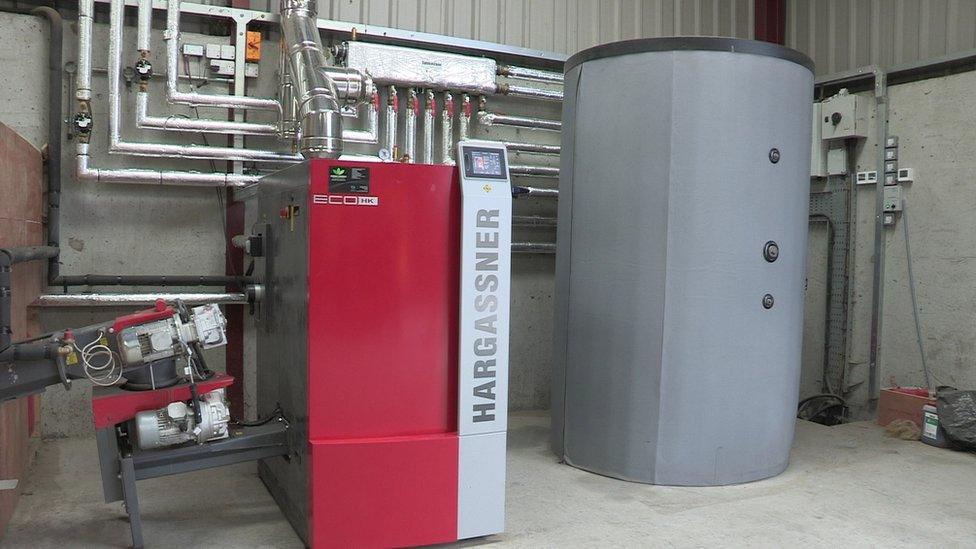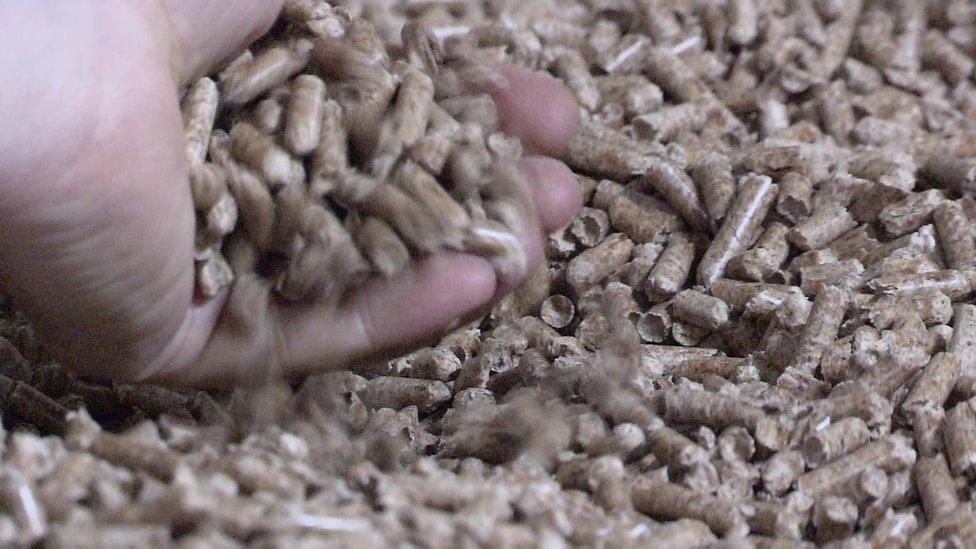RHI boiler owner naming challenge fails
- Published

A wood chip boiler accredited to the RHI scheme
A Renewable Heat Incentive scheme boiler owner has failed in a legal attempt to challenge plans to name him.
The man was refused permission to take a case against the Department for the Economy, which plans to publish another list of RHI recipients next week.
He claimed it posed a risk of reputational damage to him and losses to his business.
But the department said the stated risk was "tenuous in the extreme" and it was within its rights to proceed.
The RHI scheme was intended to increase the creation of heat from renewable sources.
However, businesses have been receiving more in subsidies than they are paying for renewable fuel and the scheme became majorly oversubscribed.
Boiler owners claim the subsidy is not simply profit, but also covers the cost of fuel and bank loans taken out to install the technology.
The fallout from the scandal surrounding the scheme, which at one point had a projected overspend of £490m, resulted in the collapse of Stormont's institutions and the calling of snap elections on 2 March.
'Untiered payments'
The applicant claimed the publication of recipients' details would not differentiate between those on a capped scheme and those who had benefitted from earlier, more generous tariffs.
The business owner, named only as WB, invested £100,000 in a boiler and was accredited to the scheme in January 2016.
That meant he was eligible only for payments limited by cost controls.

Some of the boilers burn compressed wood pellets
The court was told his first annual payment had been £5,200 - taking him just above the £5,000 limit under which companies are not named.
His barrister told the court his client could not "avail of uncapped or untiered payments", but the department was not drawing that distinction in the information it planned to publish.
'No public interest'
He added that there was no "potential for abuse" in the capped scheme, so the public interest in publication of his details did not apply to the same extent.
But a barrister for the department said the date of application would be included in the information to be published.
He said that would allow the discerning reader to differentiate which tariff applied to the applicant.
And he said it would show the applicant had not sought to get into the scheme during a huge spike in applications in Autumn 2015.
The barrister said it was important that information was published "wholesale" so that the public could see the scheme's cost controls were working.
The department has already published a list of limited companies that receive RHI subsidies.
But under data protection regulations, they had to give people who had applied under their own names the opportunity to explain why their details should not be made public.
The deadline for receipt of that information expires on Wednesday.
The court heard the department planned to publish the information next week.
Since April 2017, all RHI recipients have been moved to the capped and tiered scheme.

There's been controversy over the projected cost of the scheme
A group which represents about 500 boiler owners is planning to challenge that move in court.
- Published16 March 2017

- Published24 January 2017

- Published23 October 2019

- Published1 March 2017
